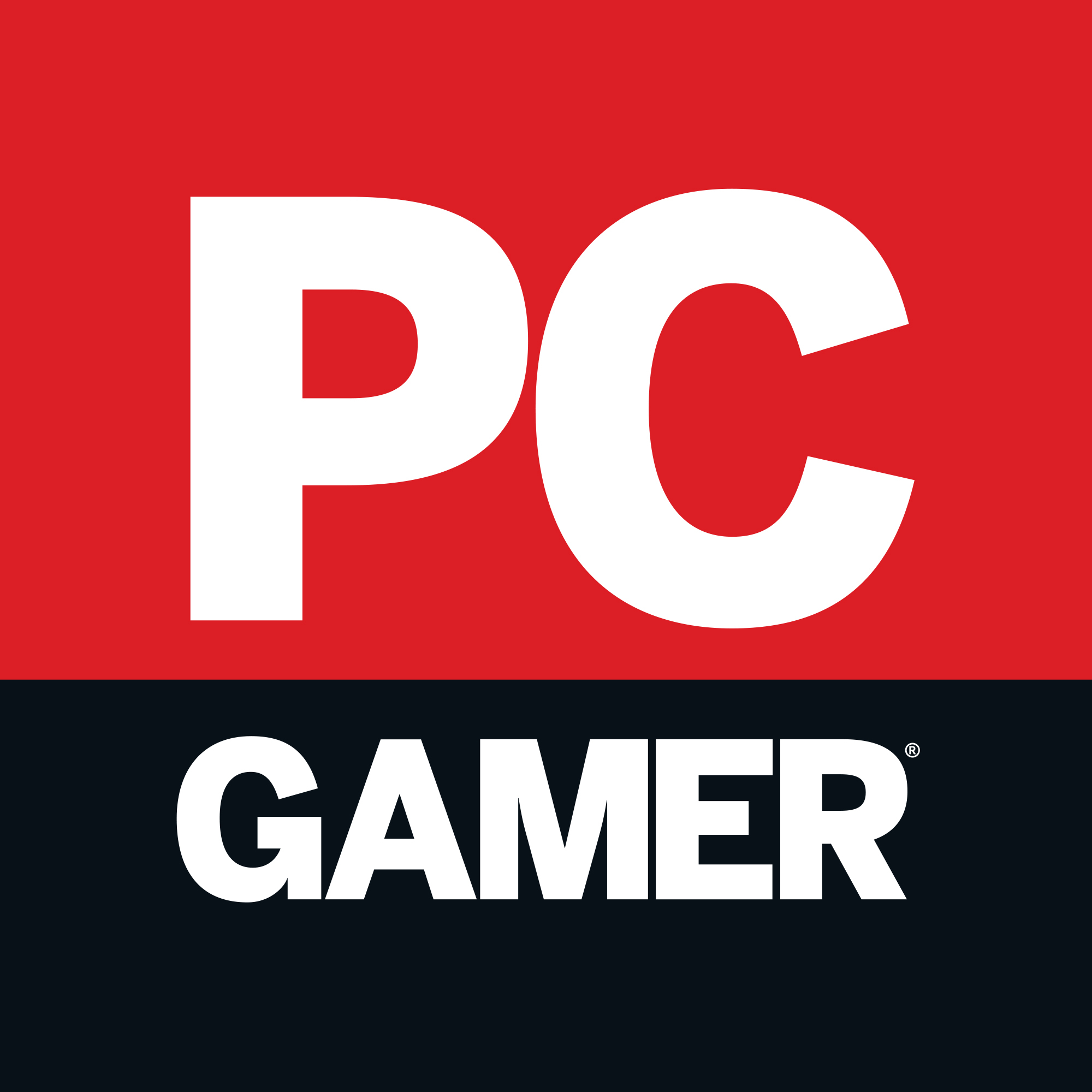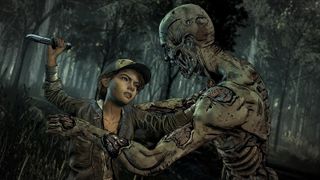
You’ve read our PC gaming highs of 2018, so now it’s time to dredge up the lows. This is all the stuff that bugged and disappointed us during the last 12 months, from studios closing to games not appearing. It’s very cathartic. And if it gets you down, just read the highs again.
Chris Livingston: Preorder bogus

I think it's probably time we stopped preordering games. Loot boxes deservedly took a lot of flak this year, but preordering games is starting to feel like it's just as much as a gamble as loot boxes are, only way more expensive. Time after time, I see preorders appear months before anyone has any idea if a game is actually good, offering very little incentive to actually buy them before they launch (and there's almost never an actual price discount). I see preordered games shoot to the top of the Steam best sellers list. I see excited fans preordering these games and then being let down when the game wasn't what they were led to believe it would be.
Whenever you spend money without knowing exactly what you're gonna get in return, it's a gamble. Early Access is the same way. There's not necessarily anything wrong with buying something before it's been officially released, and I do it often myself. Maybe you want to jump in the moment it's available, maybe you want to support a developer that has made games you enjoyed in the past, maybe you're in a financial position where potentially losing a bit of money on a gamble isn't a big deal to you. But I feel like at least some of the white-hot rage at a game not being exactly what was promised or expected could be stemmed if we didn't preorder games.
I hope we can all start to be a bit wiser in 2019, and I hope fewer people preorder games from now on. There are writers you can trust to give you their opinion before you buy. There are excellent streamers and YouTubers you can trust to show you the ups and downs of games before you spend money on them. There are Steam reviewers who will lay out the pros and cons. Developers and publishers will continue to offer preorders months before a game is even finished (you can already preorder Rage 2, and it's not due out until flippin' May), but we just like we said no to loot boxes, we can fight back against preorders by simply not paying for them.
Jarred Walton: GPU Shenanigans

2018 was a bad year for graphics cards on the whole. The first half of the year was plagued with cryptocurrency-fueled shortages, the result being most GPUs more than doubled in price. GeForce GTX 1070 is a great example of how bad things got. Originally launched in June 2016 for $380-$450, the GTX 1070 briefly hit a low of $350 in mid-2017, then jumped to $700 or more in early 2018.
When the inevitable cryptocrash arrived, things didn't just return to normal—it was a slow, painful wait. Now there's a glut of 'old' GPUs floating around waiting to be sold, and the crypto-collapse apparently impacted financial projections for Nvidia. Cry me a river. The apparent solution was to first delay the next-generation GPUs, and then eventually launch them at big prices.
GeForce RTX cards are plenty fast, but so far they're not a revolution, at least not yet. While more ray tracing games will arrive, most still use traditional rasterization techniques. And in those games, the RTX 2080 is marginally faster than a 1080 Ti but costs more than the outgoing card—or it did at least until the 1080 Ti supply disappeared. The same goes for the RTX 2070 and GTX 1080: a minor bump in performance, and a bunch of new features, basically at the same price as before. At least the RTX 2080 Ti is clearly faster than everything that came before it, but at a price of $1,199 or more, it better be.
Comic deals, prizes and latest news
Sign up to get the best content of the week, and great gaming deals, as picked by the editors.
Where is competition from AMD when we need it? How about the new and improved RX 590, which is 10-15 percent faster than the outgoing RX 580 8GB, and it only costs 40-55 percent more! I can only hope 2019 does a lot better on GPU prices and availability. It could hardly get any worse.
James Davenport: Time, the new money
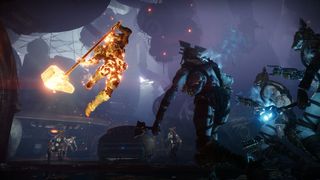
I know. Time is money. But the former is a resource that more games have managed to siphon from me unwittingly than any other year in memory. I blinked and 2018 was nearly up, only a few games completed. Monster Hunter: World, Destiny 2, Fortnite, Assassin’s Creed Odyssey—everything has regular events, updates, weekly and daily quests now. It’s too much. If I enjoy a game world or, like Destiny, enjoy the fundamentals of how it plays, then it’s easy to give into those updates and live events without a second thought. But I’m thinking for a second time now, and the bulk of the additions to live games aren’t very enriching.
We’ll have a big list of underrated games of 2018 going up soon, which was pretty easy to put together this year. We all missed valuable experiences in favor of turning off and playing the same stuff over and over. No shame if you have one main squeeze, but 2018 was a wake-up call for me. We just need to be a touch more vigilant, a bit more aware of how feedback systems keep us more invested in some games than others, and whether it’s worth giving yourself over to that loop for however long designers are able to keep you in it. Basically, I’m just mad I can’t play the Destiny 2 raids without grinding my ass off.
Wes Fenlon: A sad end for Telltale Games
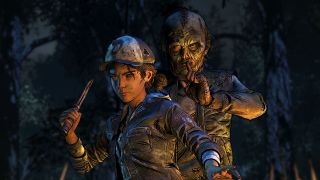
Telltale Games didn't deserve to die. The employees of Telltale, game developers who committed years of their lives to telling stories, crunching time and time again to get episodes out on time, certainly didn't deserve to lose their jobs with almost no notice and as little severance. The studio was on top of the world a few short years ago, but an over-reliance on licensed properties and a failure to evolve from a strict formula ultimately doomed them. I'm sure many developers at Telltale wanted to make different types of games. There were stories of poor management that likely prevented that from ever happening. I wish we could've seen what a more innovative Telltale looked like.
If there's any silver lining, it's that many of Telltale's talented developers are finding jobs at other studios, where I imagine they'll do great things. And the stories they've told about Telltale's issues and closure have renewed the industry's interest in talking about crunch and worker's rights, more boldly than ever before. I hope that's the legacy Telltale leaves: Making it harder for studios to treat employees badly, to embolden people across videogames to speak up and push the entire industry towards being better.
Tom Senior: Console exclusives and late arrivals
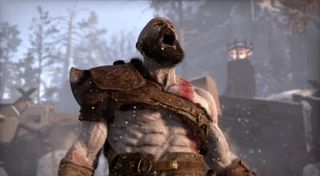
I feel like a broken record complaining about console exclusives, but it still sucks that games as huge as Red Dead Redemption 2 or God of War should bypass the PC entirely. We’re still holding out hope for Red Dead 2, given Rockstar’s previous track record, but Kratos isn’t coming anywhere near PCs (at least until emulators start catching up with this console generation).
Even a lag between platform releases can suck the excitement out of a game, especially when the game is online with rolling updates. Destiny 2 now has parity between platforms, but the delay surely hurt its audience on PC. Monster Hunter: World is brilliant on PC this year, but the fact that all the monsters and events have run on consoles first does make the game feel a bit less exciting. Living games are enriched by the online communities that spring up around them, and a late release on PC feels like walking into a party late when everyone’s already drunk and a bit tired. It’s okay, though, we can form our own club, here on PCGamer.com, and pretend that we’re all discovering Monster Hunter’s elder dragons for the very first time.
Andy Kelly: Go west
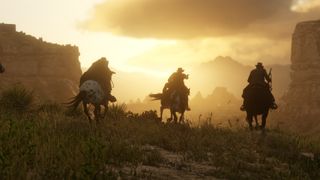
So eager was I to play Red Dead Redemption 2, I bought a PS4 Pro. And while it looks stunning on there, the whole time I was playing it I was thinking: imagine how good this would look on my PC. I wasn’t expecting Rockstar to release the game on PC this year, but a little part of me hoped they’d surprise us. But it’s cool, because when (or, cautiously, if) it arrives on PC, I’ll be playing through the whole thing again.
I’m also hoping we get some extra features, like when Grand Theft Auto V came with the brilliant Rockstar Editor. As someone who’s into taking screenshots of games, and making videos of them, I’d love the opportunity to take my virtual camera around that incredible setting. I don’t know how long it took me to finish RDR2—it must’ve been in the region of 80 hours—but I’m looking forward to going on that journey again, in 4K.
Fraser Brown: Culture clash
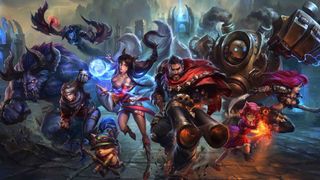
Start treating your employees better! You know who you are. This year saw several studios’ working conditions laid bare by former and current employees, and the allegations don’t paint a pretty picture. High profile cases like Rockstar’s apparent culture of crunch, lawsuits at Riot and the Telltale shutdown loomed over the second half of the year and begged the question: are any of these games really worth this?
No, of course they aren’t. Words like “passion” are thrown around a lot to excuse poor working conditions, especially in creative industries, and there’s pressure to be a “team player”, which really means not kicking up a fuss. They have even more power when games are treated like these important, life-changing works, because that makes it easier to tell people they’ll be missing yet another weekend with their families.
The attention these issues have been given lately should, in a perfect world, ensure that it stops happening. People will stop buying the games, the studios will stop winning awards—but the whole history of the industry suggests that this probably isn’t going to happen. When there aren’t consequences, there’s not really any need to change. If there is a positive side-effect, it's that workers are unionising, which will hopefully start to serve as a bulwark against crunch and harassment.
Samuel Roberts: Blockbuster drought

2018 definitely had a pile of great games, but I think blockbusters let the side down a bit this year. Partly, I think it comes down to games like Red Dead missing the PC as Andy discussed above, or the huge wait on Monster Hunter: World, which came out months after the console release. My theory, though, is that the ageing console cycle indirectly affects the kind of big PC games we get in a given year—those new consoles are probably one or two years away now at most, and I would bet that some publishers are holding back some major, exciting projects as a result. A similar thing happened around 2012 and 2013.
It's not helped when games in this final quarter of the year like Fallout 76 or Just Cause 4 turned out to be a little disappointing, too. Even Battlefield 5 was our lowest scoring main entry in some time—Hitman 2 aside, I haven't found much to love in this year's busy season from the major publishers, even as I'm continually dazzled by the indie scene on PC. I want both, you know? Just look at our winners' lists from 2015—that was an amazing year for big games.
The collective PC Gamer editorial team worked together to write this article. PC Gamer is the global authority on PC games—starting in 1993 with the magazine, and then in 2010 with this website you're currently reading. We have writers across the US, UK and Australia, who you can read about here.
Most Popular


